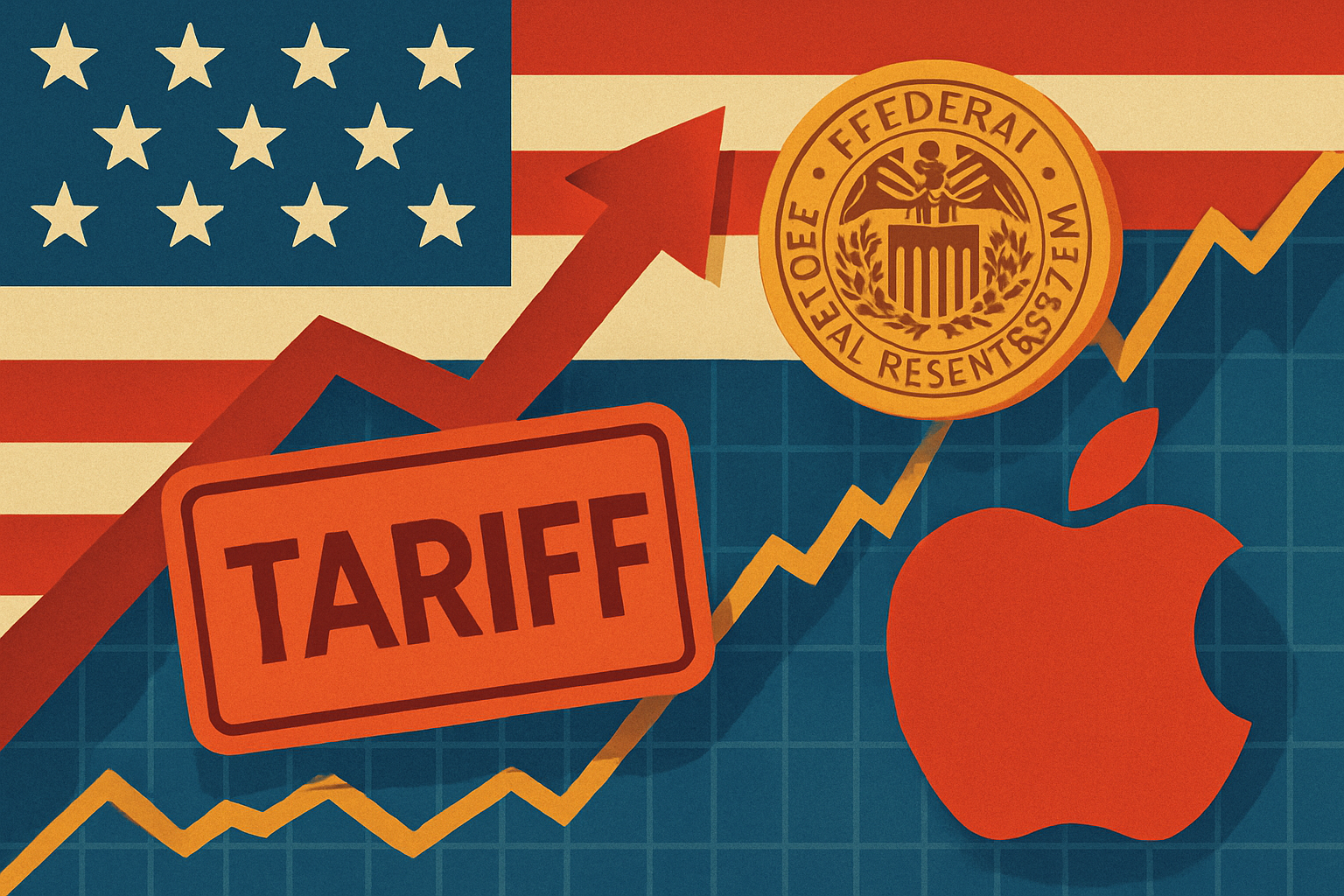Global markets delivered a surprise rally on August 7, defying bearish expectations tied to a fresh wave of U.S. tariffs ranging from 10% to 50%. Investor sentiment was buoyed by two stabilizing forces: Apple’s massive domestic investment push and dovish signals from the Federal Reserve, which eased fears of prolonged monetary tightening. With chip tariff exemptions granted to Taiwan and South Korea, the move softened geopolitical blowback and offered tech markets some breathing room.
This rebound highlights how markets, while sensitive to trade disruptions, are increasingly reliant on central bank tone and corporate capital allocation as primary navigational cues. For investors, the takeaway is clear: volatility remains—but it’s the nuance that matters now.
Tariffs Return, But the Market Doesn’t Flinch
The U.S. Trade Representative’s office confirmed the imposition of broad new tariffs targeting electronics, solar components, and electric vehicle parts, with rates escalating as high as 50% on select Chinese imports. This comes amid renewed political momentum in Washington to protect strategic industries from foreign competition—a familiar theme for seasoned market watchers.
However, unlike previous tariff cycles that rattled global equities, markets brushed off the announcement. The Dow Jones Industrial Average closed up 1.2%, the Nasdaq rose 1.5%, and the S&P 500 gained 1.3%—all marking intraday highs not seen since early June.
A Reuters report (Aug. 7) attributes the resilience in large part to strategic policy calibration. Notably, exemptions were carved out for chip components imported from Taiwan and South Korea—key suppliers for American tech companies. This exemption not only shielded companies like $AAPL, $NVDA, and $AMD from immediate cost pressure, but also signaled a degree of global coordination in maintaining tech supply chains.
Apple’s Domestic Investment Provides a Confidence Anchor
Apple ($AAPL), which has been under investor scrutiny for its exposure to Chinese manufacturing, offered a rare bright spot. The company announced an expansion of its U.S.-based semiconductor and AI operations, pledging an additional $12 billion toward domestic manufacturing over the next 24 months.
This announcement, coming just ahead of the tariff rollout, was interpreted by analysts as a hedge against future geopolitical risk—and a signal of commitment to operational resilience.
“Apple’s move helped absorb the shock from tariffs,” said Morgan Stanley strategist Elise Becker. “It demonstrates that large-cap tech players are proactively managing supply chain risks—giving the market something to rally around.”
Why This Matters for Investors
Trade wars historically spook markets—but this episode reveals a shift in market psychology. Investors appear to be prioritizing how trade policy is implemented, rather than reacting reflexively to tariff headlines.
Key factors moderating investor concern:
- Selective Exemptions: Taiwan and South Korea exemptions preserve key semiconductor flows.
- Corporate Adaptability: Apple and others are investing aggressively in domestic capacity, reducing long-term exposure.
- Dovish Fed Tone: Federal Reserve Chair Powell hinted at the Jackson Hole symposium that “rate cuts remain on the table” should inflation soften further.
This combination of strategic policy execution and forward-looking corporate behavior is tempering what would normally be a market-negative event.
Future Trends to Watch
1. Tech Sector Resilience Amid Policy Shocks
Tariffs may no longer be the blunt instruments they once were. Watch how companies with global supply chains hedge with domestic investments and new alliances.
2. Central Bank Signals Remain Paramount
The Fed’s tone is arguably more influential than fiscal headlines. Expect markets to remain highly reactive to Fed minutes, inflation data, and Powell’s speeches.
3. Asia Tech Relations Stay Fragile but Critical
Despite tensions, the U.S. remains highly dependent on Asian partners for semiconductors and advanced components. Taiwan and South Korea’s continued exclusion from trade penalties suggests an effort to maintain this delicate balance.
Key Investment Insight
Investors should consider overweighting sectors with high policy visibility and adaptability—namely large-cap tech, domestic manufacturers, and infrastructure-related plays. Companies that are actively reshoring production or diversifying supply chains could offer more stability in an uncertain policy environment.
At the same time, exposure to global semiconductor supply chains—particularly firms with strong relationships in Taiwan and South Korea—remains attractive, given their apparent immunity to the latest tariff actions.
For timely insights on market shifts, geopolitical risks, and emerging investment opportunities, stay with MoneyNews.Today—your daily edge in a fast-moving financial world.





